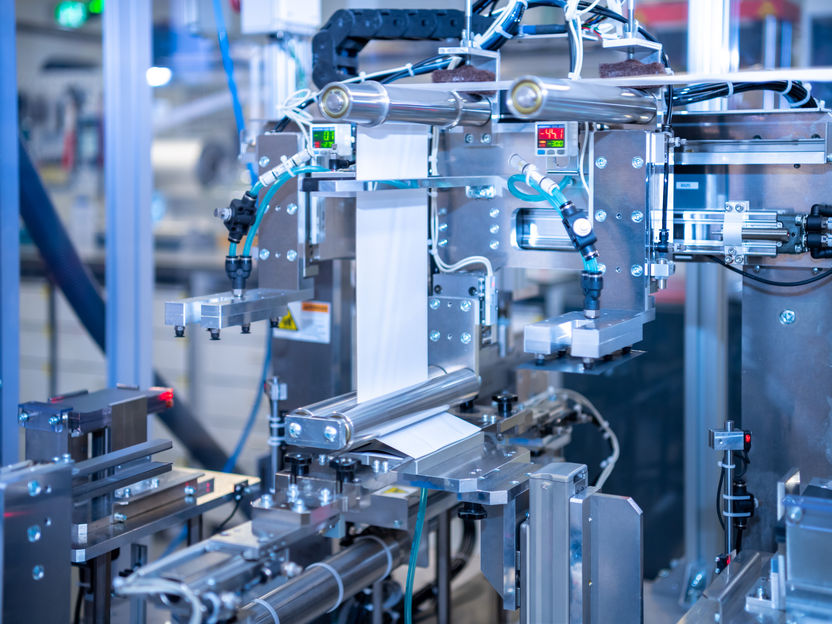Recycling process developed for dry-processed cathodes
Research team drives forward environmentally friendly battery production
Advertisement
Innovative production processes such as the dry processing of electrodes are a decisive step towards making the production of battery cells more environmentally friendly and cost-effective. This process completely eliminates the need for expensive, sometimes toxic, organic solvents. This is made possible by the choice of a suitable binder: the high-temperature plastic polytetrafluoroethylene (PTFE). In order to strengthen the circular economy of batteries with such processes, it is essential to integrate recycling options from the outset. A team from the MEET Battery Research Center and the Institute of Industrial Chemistry at the University of Münster has therefore developed a method that can be used to recycle dry-processed cathodes from lithium-ion batteries. The experts have now published their results in the specialist journal "Advanced Energy Materials".

Both the dry processing of electrodes and their recycling are researched in the laboratories of the MEET Battery Research Center.
Copyright:Uni Münster - Michael Möller
"Recycling can be successfully implemented and scaled up using dry processing mills," says Maike Michelle Gnutzmann, PhD student at the MEET Battery Research Center and the international research school BACCARA. In the case of dry-processed cathodes, the mills separate the cathode composite from the current collector and then granulate it. As a result, all components such as the active material, PTFE binder and conductive carbon black are in their original form.
As the materials are not damaged by this recycling process, they can be reused immediately. In addition, the Institute for Industrial Chemistry assessed the profitability of the process positively by analyzing the life cycle costs. The results show that the recycling process is not only interesting for industrial applications due to its sustainability, but also for cost reasons.
Note: This article has been translated using a computer system without human intervention. LUMITOS offers these automatic translations to present a wider range of current news. Since this article has been translated with automatic translation, it is possible that it contains errors in vocabulary, syntax or grammar. The original article in German can be found here.
Original publication
Other news from the department science
Most read news
More news from our other portals
See the theme worlds for related content
Topic World Battery Technology
The topic world Battery Technology combines relevant knowledge in a unique way. Here you will find everything about suppliers and their products, webinars, white papers, catalogs and brochures.

Topic World Battery Technology
The topic world Battery Technology combines relevant knowledge in a unique way. Here you will find everything about suppliers and their products, webinars, white papers, catalogs and brochures.
































































